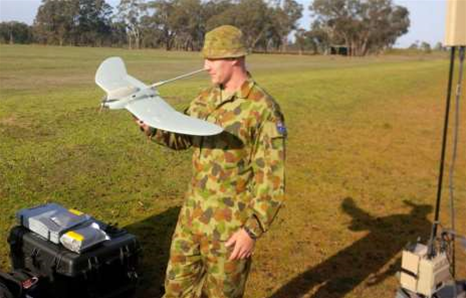Defence has finalised the 13 components that it hopes to incorporate into a single system to help agencies counter national security threats.

The Defence Science and Technology (DST) Group has been exploring options since April last year when it opened the counter improvised threats grand challenge to submissions.
In that time, it fielded “over 200” expressions of interest, which it whittled down to 40 and ultimately 13 projects that will share a total funding pool of $19 million.
“The outcomes of the winner’s proposals will be developed over the next four years into a single, prototype threat detection and defeat system, led by Defence,” defence industry minister Christopher Pyne said in a statement before Christmas.
“This will be a game-changing capability and I look forward to its implementation in saving Aussie lives and property.”
Little has so far been said about what these individual projects will bring to the broader system.
However, one of the winners - the University of Western Australia - indicated it hopes to develop sensor-armed drones to enable Defence to detect and counter “improvised threats” against Australian sites.
UWA said in a statement of its own that its $2.9 million over three years would go into “high tech sensing capabilities on specifically designed drones [to] detect improvised threats in high-risk environments.”
“UWA will be partnering with local drone manufacturer Scientific Aerospace, and Melbourne-based Panorama Synergy, to undertake the venture,” it said.
“Once perfected, the technology will have also have applications in food & agriculture, and in remote sensing for mineral exploration.”
Another project to receive funding - also $2.9 million over three years - is a “collaboration between Flinders University, Queensland University of Technology, and the Defence Science and Technology (DST) group, Flinders said in a statement of its own.
Flinders University did not say how it intended to approach the project, other than to say it targeted the “detection of chemical hazards and concealed explosives”.
Pyne said that in total, the "successful proposals were received from the University of South Australia, University of Adelaide, University of Western Australia, University of Queensland, Flinders University and Queensland University of Technology as well as Lockheed Martin, CSIRO, L3Micreo, DefendTex, Teledyne, Tectonica and Rfteq".
More 'grand challenges' are expected to be opened up to research contributions in future.
Ultimately, they all fall under the auspices of the government’s broader $730 million next generation technologies fund (NGTF), a decade-long scheme which is administered by DST Group.
Outside of the grand challenge, Defence researchers are also looking to artificial intelligence to help in the management of national security.


_(33).jpg&h=140&w=231&c=1&s=0)
.png&h=140&w=231&c=1&s=0)







 iTnews Benchmark Awards 2026
iTnews Benchmark Awards 2026
 iTnews Executive Retreat - Security Leaders Edition
iTnews Executive Retreat - Security Leaders Edition
 iTnews Cloud Covered Breakfast Summit
iTnews Cloud Covered Breakfast Summit
 The 2026 iAwards
The 2026 iAwards












_(1).jpg&h=140&w=231&c=1&s=0)



